"Never trust a man or a woman who is not passionately devoted to geraniums."

Beverley Nichols is one of my favourite writers and coincidently one of my favourite people. I learn more from him in a few pages about flowers and plants than I do in a plant encyclopaedia. But it is not just the kind of information he shares, it's how he shares it. He paints a picture so beautiful and entrancing over the smallest bloom that one feels that if one doesn't go out and buy 30 of them immediately that life would suddenly have no meaning.
If I am feeling stressed and lost, I pick up Merry Hall and Beverley welcomes me, slips his arm in mine and takes me on a walk through the garden, showing me the lilacs under the copper beech with the carpet of periwinkles and round to the blossom tress that frame the gurgling fountain, all ending in the conservatory to see the geraniums. Apple blossom geraniums are truly the most beautiful of all the geraniums.
John Beverly Nichols, born 9 September 1898 was an English author, playwright, journalist, composer, and public speaker.
He went to school at Marlborough College and proceeded to Balliol College, Oxford in January 1917. His education was interrupted by military service, during which he worked in the Intelligence section at the War Office, as an instructor to the Officer Cadet Battalion in Cambridge, and as aide-de-camp to Arthur Shipley during the British University Mission to the United States. Nichols then returned to Oxford, where he was President of the Oxford Union and editor of Isis.

Between his first book, the novel Prelude, published in 1920, and his last, a book of poetry, Twilight, published in 1982, Nichols wrote more than 60 books and plays. Besides novels, mysteries, short stories, essays and children's books, he wrote a number of nonfiction books on travel, politics, religion, cats, parapsychology, and autobiography. He wrote for a number of magazines and newspapers throughout his life, the longest being weekly columns for the London Sunday Chronicle newspaper (1932–1943) and Woman's Own magazine (1946–1967).
Nichols made one appearance on film. In 1931, he appeared in Glamour, directed by Seymour Hicks and Harry Hughes, and he played the small part of the Hon. Richard Wells. The film is now lost.

Nichols is now best remembered for his gardening books, the first of which, Down the Garden Path, was illustrated, as were its two sequels, by Rex Whistler. The bestseller, which has had 32 editions and has been in print almost continuously since first published in 1932, was the first of his trilogy about Allways, his Tudor thatched cottage in Glatton, Cambridgeshire.
The books are written in a poetic manner, with a rich, creative language, evoking emotional and sensual responses but also with a lot of humour and even a hint of irony.
In 1934, Nichols wrote a bestselling book advocating pacifism, Cry Havoc! By 1938, he had abandoned his pacifism; he later supported the British campaign in World War II.

A book about his city garden, near Hampstead Heath in London, Green Grows the City, published in 1939, was also very successful.
The book introduced Arthur R. Gaskin, who was Nichols's manservant from 1924 until Gaskin's death in 1966. Gaskin was a popular character, who also appeared in the succeeding gardening books.
"Long experience has taught me that people who do not like geraniums have something morally unsound about them. Sooner or later you will find them out; you will discover that they drink, or steal books, or speak sharply to cats. Never trust a man or a woman who is not passionately devoted to geraniums."
- Beverley Nichols

Nichols wrote on a wide range of topics, always looking for "the next big thing". As examples, he ghostwrote Dame Nellie Melba's 1925 "autobiography" Memories and Melodies (he was at the time her personal secretary, and his 1933 book Evensong was believed based on aspects of her life). In 1966 he wrote A Case of Human Bondage about the marriage and divorce of writer William Somerset Maugham and his interior-decorator wife, Syrie, which was highly critical of Maugham.

A later trilogy written between 1951 and 1956 documents Nichols's travails renovating Merry Hall (Meadowstream), a Georgian manor house in Agates Lane, Ashtead, Surrey, where Nichols lived from 1946 to 1956.
The books often feature his gifted but laconic gardener "Oldfield". Nichols's final trilogy is referred to as "The Sudbrook Trilogy" (1963–1968) and concerns his late 18th-century attached cottage at Ham, near Richmond, Surrey.

His main interest apart from the writing of his books was gardening, especially garden design and winter flowers. Among his huge acquaintance in all walks of life were many famous gardeners including Constance Spry and Lord Aberconway, who was President of the Royal Horticultural Society and owner of the Bodnant Garden in North Wales.
He is thought to have had a brief affair with a famous war poet, Siegfried Sassoon but Nichols's long-term companion was Cyril Butcher, who was the main beneficiary of Nichols's will.
Beverley Nichols died on15th September 1983 aged 85 in Kingston upon Thames and his ashes were later scattered on the grounds of the St Nicholas Church, Glatton, England.
In 2018 the village of Glatton held a Beverley Nichols festival ending the event with the unveiling of a commemorative plaque at the crossroads in Glatton. The location of the commemorative stone & plaque is significant as it lies exactly halfway between Beverley’s beloved Tudor Cottage “Allways”and the cemetery at St Nichols’ Church where his ashes were laid to rest. The plaque is etched with a drawing by Rex Whistler (from “A Thatched Roof”) which shows a young Beverley looking out from the music room at “Allways” toward St Nicholas’ Church.

Reading Recommendations & Content Considerations

The Sweet and Twenties
by
Beverley Nichols
I could not recommend his gardening books enough
by by by
Beverley Nichols Beverley Nichols Beverley Nichols
&
To end is one of the surviving clips of film with Beverley talking and while it may be about Ford motors it's still nice to hear his voice.




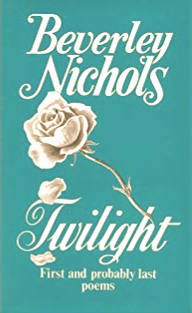

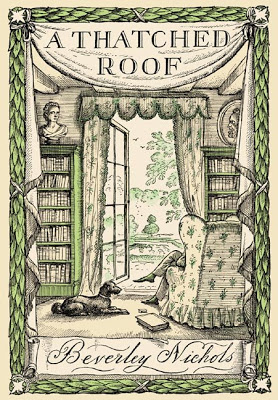

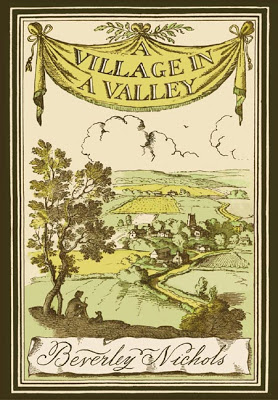







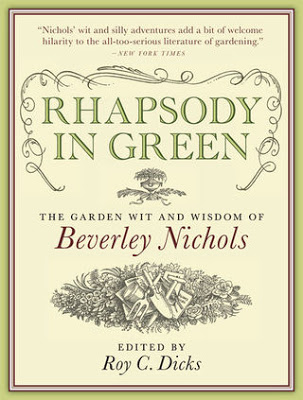

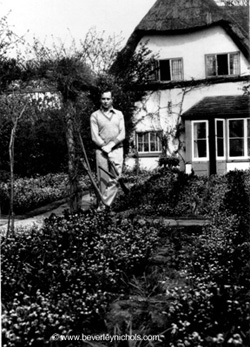



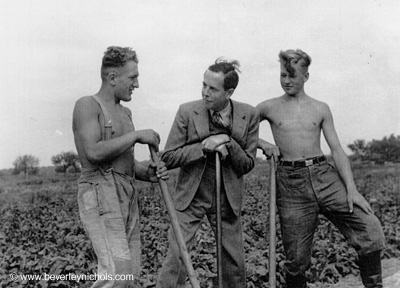



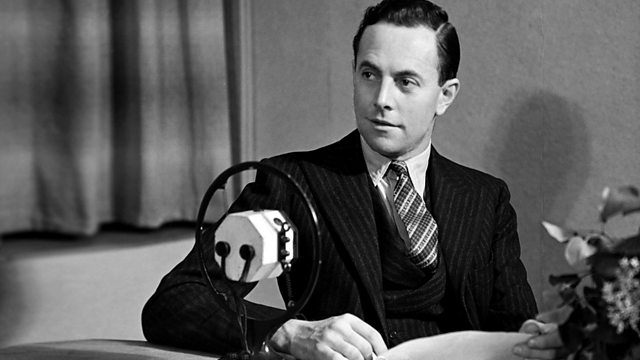









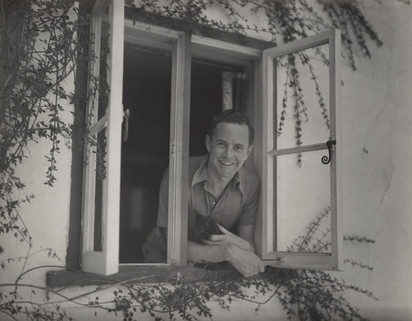
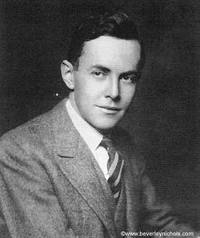



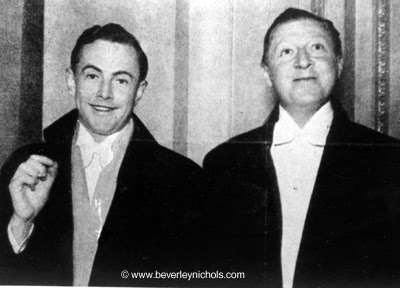















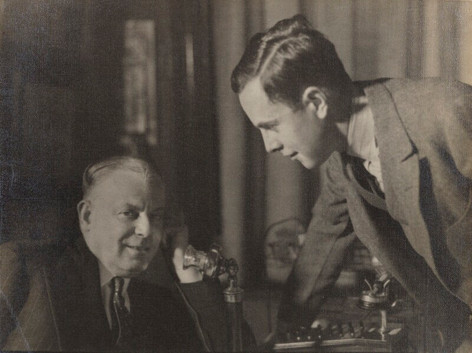











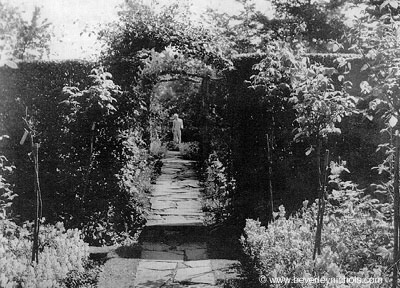


Comments